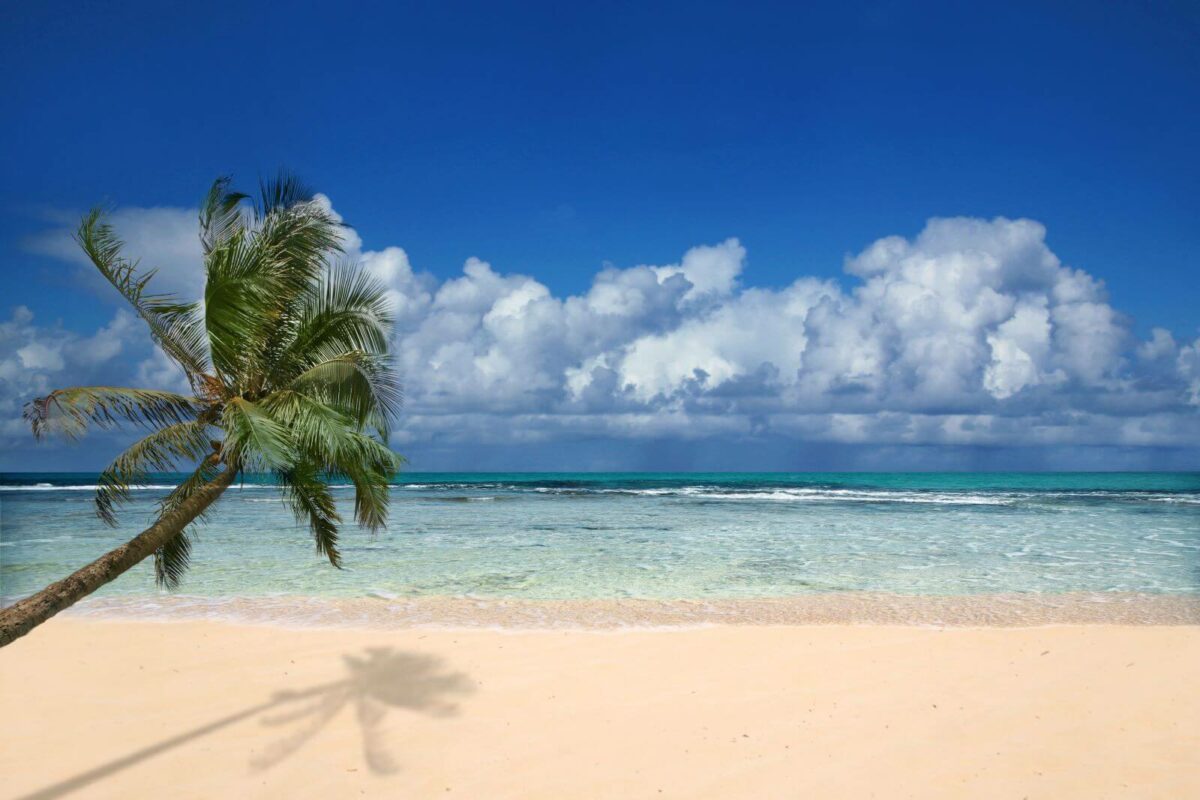Don’t let hearing loss stand in the way of your dreams! If you’re dreaming of sun-drenched beaches and crystal-clear turquoise waters, we’re here to make that dream come true. But we also understand how those dreams may seem daunting when you’re navigating the world with hearing loss. But worry not! With the right preparation, you can enjoy a tropical vacation just like everyone else. And as your trusted hearing professionals, we’ll guide you on this exciting journey. So, grab a Piña Colada, and let’s get started!
Trouble in Paradise
Ah, the allure of tropical destinations—pristine beaches, lush greenery, and a vibrant atmosphere. However, if you’re a hearing aid wearer, you may encounter a few hurdles in these paradisiacal settings. Let’s dive into why tropical locations can be quite the challenge for your trusty hearing aids.
First, we have the notorious culprit: humidity. Tropical regions are known for their high moisture levels, and unfortunately, hearing aids don’t take kindly to excess moisture. The delicate electronic components of your devices can become susceptible to damage or malfunction when exposed to humid conditions. Think of it as a battle between sensitive electronics and the oppressive tropical humidity.
But that’s not all. Sweating becomes an inevitable companion in tropical climates, thanks to the heat and humidity. Unfortunately, sweat and hearing aids don’t exactly get along. As perspiration makes its way into your hearing aids, it can lead to corrosion or compromise their functionality. It’s like a not-so-pleasant dance between sweat and your hearing aids, with potential consequences for sound clarity.
Now, let’s talk about the bane of clean devices: dust and debris. Less developed countries often have a higher concentration of these unwanted particles floating around. They’re just waiting for an opportunity to infiltrate the microphones, speakers, or any tiny opening in your hearing aids. The result? Reduced sound quality or, in some cases, blockages that hamper your hearing experience. Picture it as a microscopic invasion of your hearing aids by airborne intruders.
Lastly, let’s not forget the allure of outdoor activities in tropical locales. Whether it’s snorkeling in crystal-clear waters or engaging in exhilarating water sports, these experiences can pose a threat to your hearing aids. Most hearing aids aren’t designed to be fully waterproof, leaving them vulnerable to water damage. Even high humidity or excessive perspiration during these adventures can cause havoc. It’s like subjecting your hearing aids to a watery gauntlet.
Tips to Navigate a Tropical Vacation with Hearing Aids
Consult with your hearing healthcare professional: Before embarking on your trip, it’s a good idea to schedule a visit with your hearing healthcare professional. They can assess the condition of your hearing aids, make any necessary adjustments, and provide specific recommendations based on your device’s make and model.
Invest in water-resistant or waterproof hearing aids: If you’re planning on engaging in water-related activities, consider upgrading to hearing aids specifically designed to be water-resistant or waterproof. These models have enhanced protection against moisture and can better withstand exposure to water or sweat.
Get a protective case: Purchase a durable and waterproof case to store your hearing aids when they’re not in use. This will help shield them from moisture, dust, and accidental damage during your travels. Look for cases with sealing mechanisms to ensure a tight, secure fit.
Stock up on drying aids or dehumidifiers: Humidity can be a hearing aid’s worst enemy. Invest in drying aids or dehumidifiers designed specifically for hearing aids. These devices help remove moisture from your hearing aids when you’re not wearing them, keeping them dry and reducing the risk of damage.
Bring cleaning tools and supplies: Pack a cleaning kit that includes a soft, lint-free cloth, a small brush, and specialized cleaning solutions recommended for your hearing aids. Regularly clean your devices to remove dust, debris, and sweat, ensuring optimal performance throughout your vacation.
Take precautions during water activities: If you plan to partake in water-based activities, such as swimming or snorkeling, it’s best to remove your hearing aids beforehand. Store them securely in your waterproof case and only wear them once you’re out of the water to prevent accidental damage.
Keep spare parts and batteries handy: Pack extra batteries, wax guards, and tubing (if applicable) in case of emergencies. Tropical locations might not always have easy access to hearing aid supplies, so being prepared ensures you can address any unexpected issues that may arise.
What’s Next? – Your Path to a Hearing Aid Vacation
The world is yours to explore, and hearing loss shouldn’t stop you. Start by acknowledging your situation. Reach out to us, your hearing professionals. We are dedicated to guiding you, from the first signs of hearing loss to choosing the right hearing aids and beyond. Your journey to better hearing begins with a simple step.
So what are you waiting for? Don’t let the sounds of a tropical vacation pass you by. Reach out to us today, and together, we’ll prepare you for a memorable journey filled with sun, sand, and sweet sounds.

